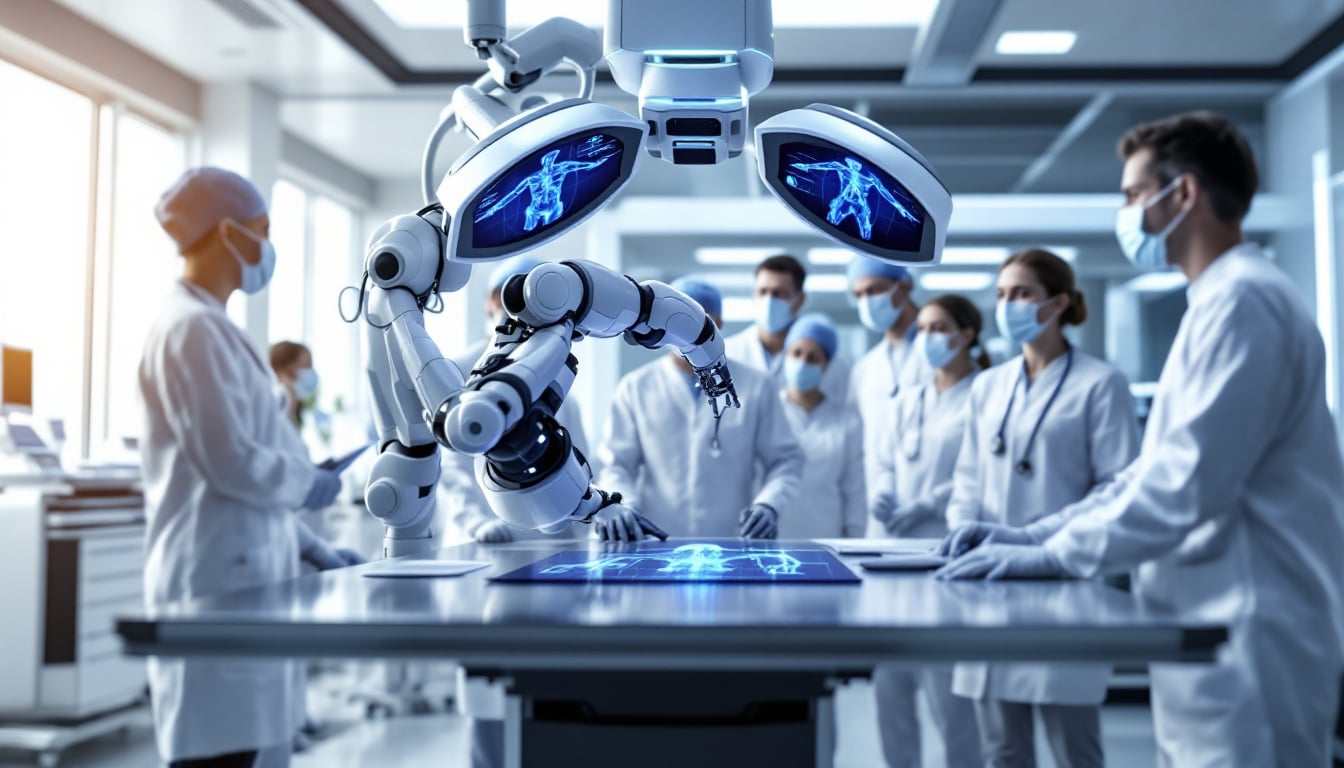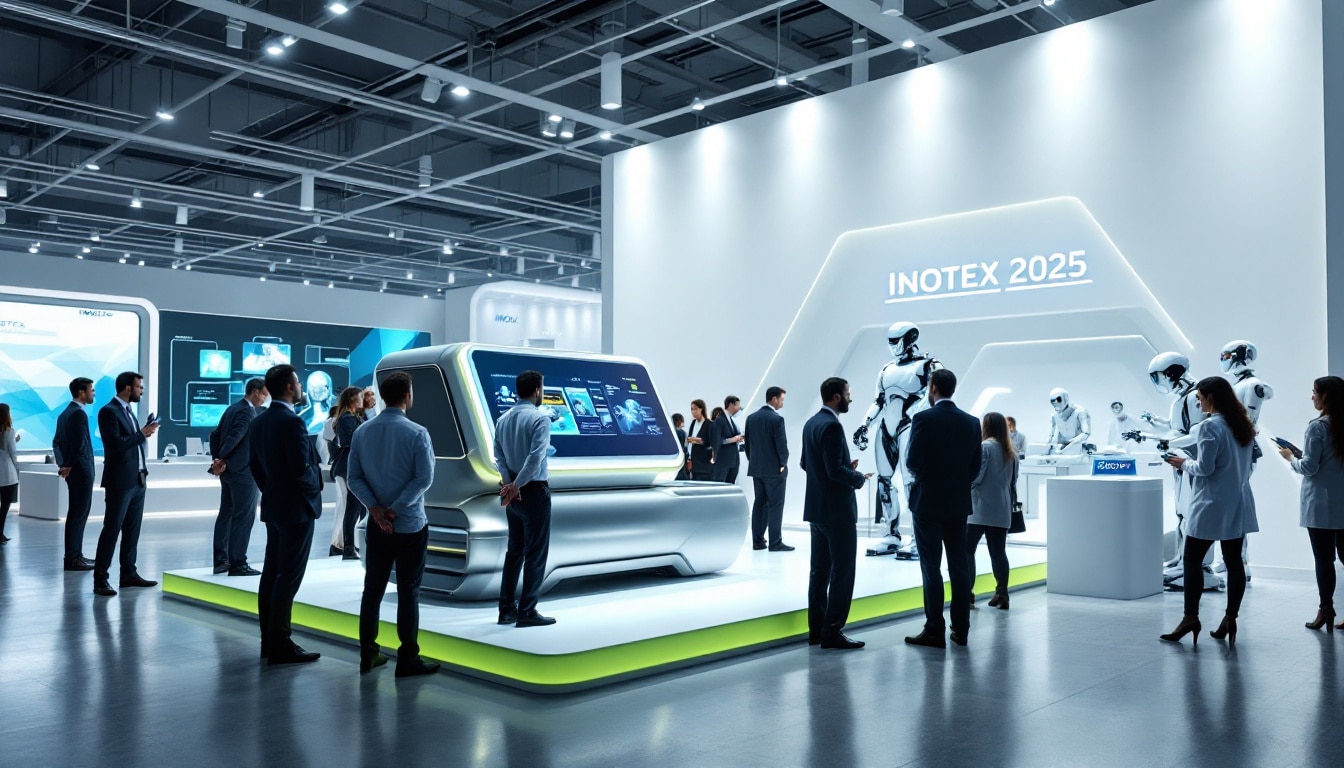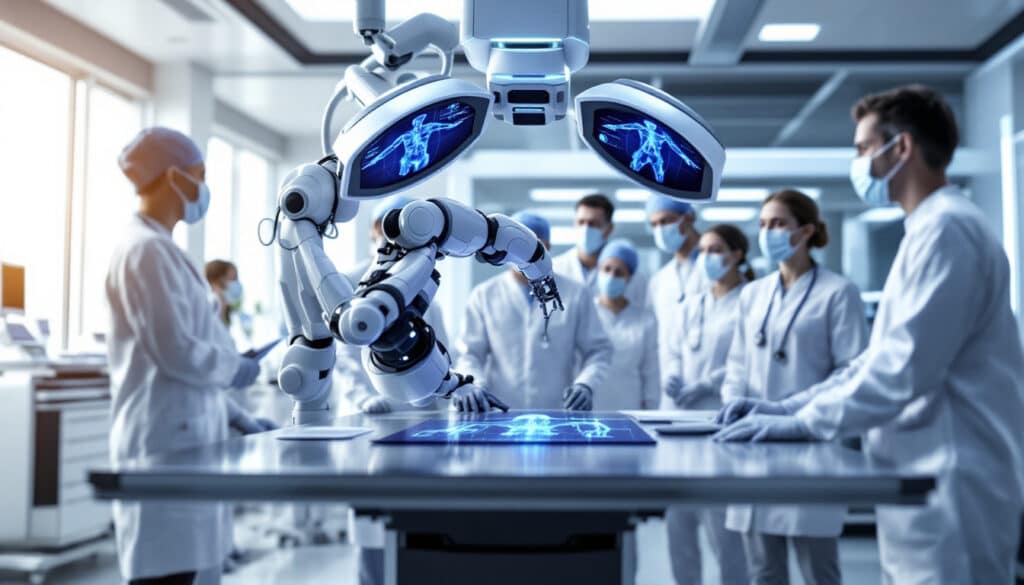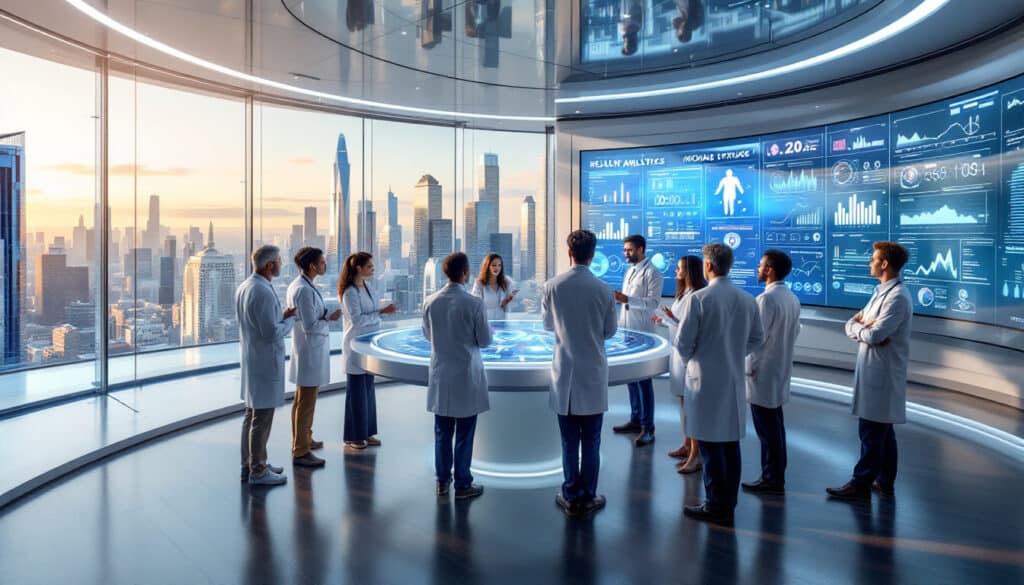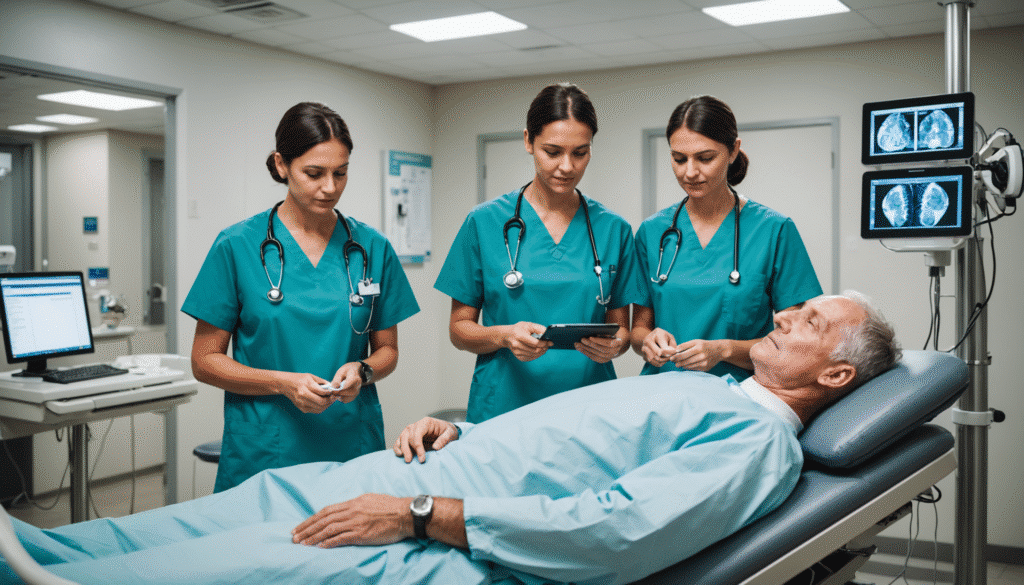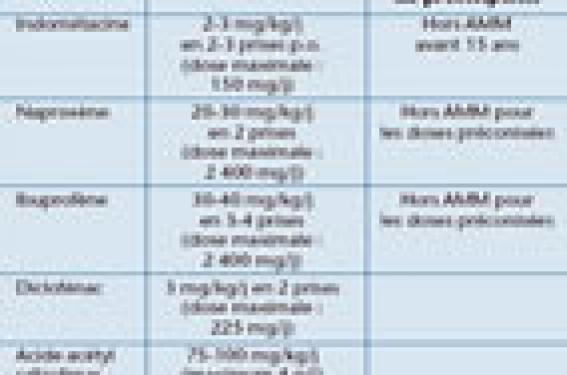The operating room is a theater where precision and mastery border every gesture.Each intervention is a delicate dance between technology and human expertise.In this space, every detail matters to ensure the well-being of the patient.
Recent advances in medical technology are revolutionizing surgical practice. Innovation and compassion come together to provide personalized care. Surgeons today have more efficient tools than ever to intervene with increased precision. Thus, the future of surgery looks promising and filled with infinite possibilities.
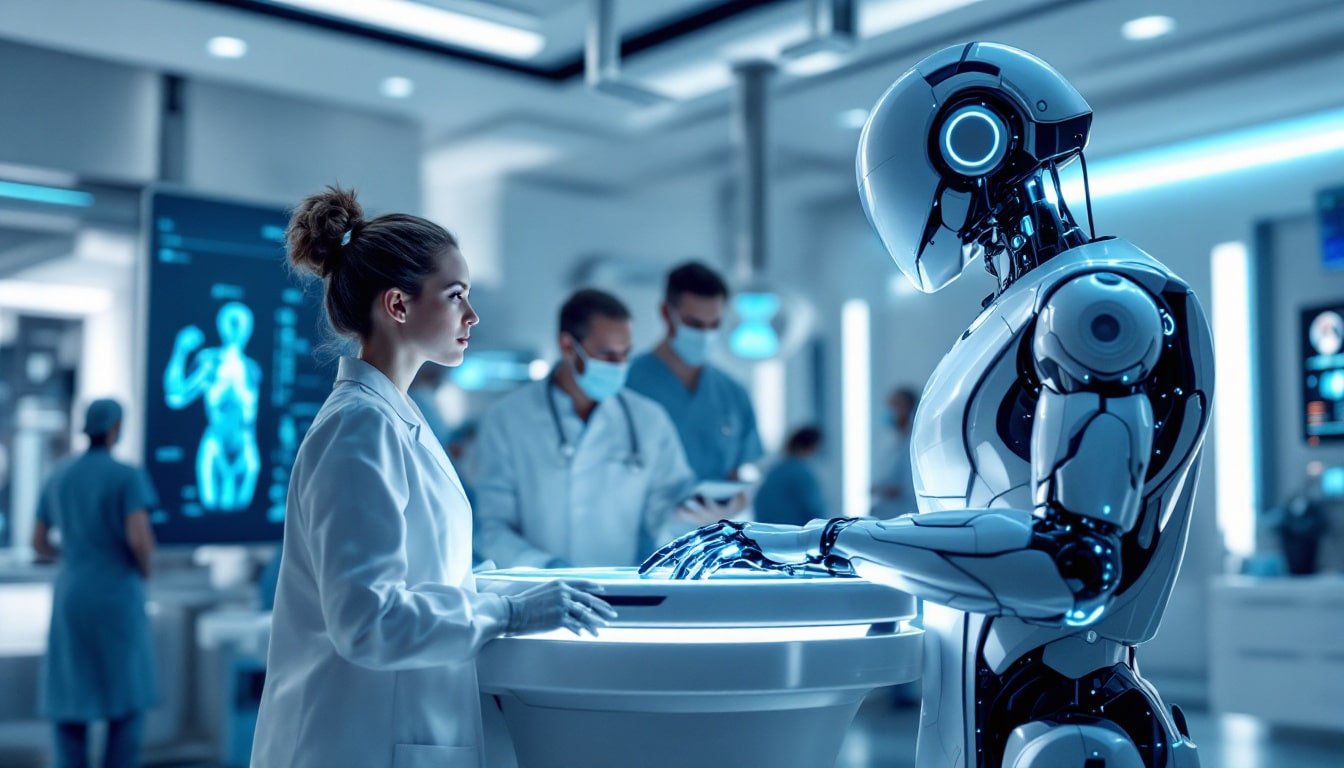
Advances in medical technology are revolutionizing the daily lives of healthcare professionals. These innovations offer new opportunities to enhance diagnostics, treatments, and care management. Here is an overview of the innovations in medtech that generate the most enthusiasm among doctors today.
How are innovative platforms transforming modern surgery?
Innovative platforms play a crucial role in transforming modern surgery. The Hotel Dieu Platform E28, for example, is at the forefront of this revolution. This platform allows for a seamless integration of advanced surgical tools, thus facilitating complex interventions. Thanks to a robust infrastructure and cutting-edge technologies, surgeons can perform operations with increased precision and better risk management.
Furthermore, these platforms promote interdisciplinary collaboration, enabling medical teams to work more coherently and effectively. The integration of real-time data and advanced analytics tools provides physicians with valuable information for making informed decisions during interventions. To learn more about this innovation, visit Biographies of Hotel Dieu Platform E28 in Medtech Innovation.
What are the impacts of new data in medtech on heart rhythms?
New data from medtech companies revolutionize our understanding and treatment of heart rhythm disorders. The HEART RHYTHM 2025 conference shed light on significant advances thanks to contributions from innovative companies. This data allows for the development of more precise and personalized devices to monitor and treat cardiac anomalies.
The use of artificial intelligence and big data analytics enables early detection of cardiac irregularities, thereby improving patient outcomes. These innovations also offer remote monitoring solutions, allowing for ongoing and proactive management of cardiac conditions. To discover the new data presented at HEART RHYTHM 2025, visit The PFA in the Spotlight at Heart Rhythm 2025 with New Data from Medtech Companies.
How does the separation of Velocity Medtech impact the medical sector?
The recent separation of Velocity Medtech, which resulted in the departure of 70 employees in Monroe, has generated significant reactions in the medical sector. This strategic decision aims to refocus the company’s efforts on key areas of innovation. By separating from certain entities, Velocity Medtech can invest more in the research and development of emerging technologies.
This restructuring also allows for better allocation of resources, promoting continuous improvement of the products and services offered to healthcare professionals. Although the departure of these employees raised concerns, the long-term goal is to strengthen Velocity Medtech’s position as a leader in the field of medical technology. For more details on this development, visit Velocity Medtech separates from 70 employees in Monroe.
What is HelloCare’s success story in the medtech field?
HelloCare represents a true success story in the medtech field, revolutionizing how healthcare is delivered. This company has developed innovative solutions that integrate telemedicine, electronic medical record management, and remote diagnostic tools. Through these innovations, HelloCare has improved accessibility and quality of care, particularly in rural and underserved areas.
HelloCare’s patient-centered approach allows for personalized care adapted to individual needs. Moreover, the integration of information technologies facilitates communication among the various actors in the healthcare system, thereby improving care coordination. To learn more about the revolution brought by HelloCare, visit The success story of HelloCare: a revolution in medtech.
How does medtech innovation improve postoperative care management?
Innovation in medtech has a significant impact on postoperative care management, offering solutions for more effective and personalized follow-up of patients after surgical intervention. Remote monitoring devices allow for real-time tracking of patients’ health status, rapidly detecting any potential complications. These technologies also facilitate communication between patients and healthcare professionals, ensuring continuous and responsive follow-up.
Moreover, mobile applications and online platforms provide medication management tools, rehabilitation tracking, and psychological support, thus contributing to a faster and more complete recovery. The use of artificial intelligence allows for predicting postoperative risks and adapting treatments accordingly, thereby improving clinical outcomes.
What are the advantages of advanced diagnostic devices in medtech?
Advanced diagnostic devices represent a major advancement in modern medicine, offering more precise and rapid tools for identifying diseases and medical conditions. These technologies include cutting-edge medical imaging, biometric sensors, and data analytics systems. Thanks to these innovations, doctors can achieve more accurate diagnoses and intervene earlier, thereby improving healing prospects and patients’ quality of life.
Advanced diagnostic devices also allow for personalizing treatments based on the specific characteristics of each patient, fostering a more targeted and effective approach. Furthermore, integrating these technologies into standard clinical processes facilitates the management of medical records and care coordination, making the healthcare system more efficient and coherent.
How is virtual reality transforming medical training?
Virtual reality (VR) is transforming medical training by offering immersive environments for learning and practicing surgical skills. VR simulators allow students and healthcare professionals to train on complex procedures in a secure and controlled setting, thereby reducing errors and improving mastery of techniques.
In addition, VR facilitates interactive learning and visualization of three-dimensional anatomical structures, offering a deeper understanding of the human body and pathologies. These innovative technologies are also used for the continuous training of doctors, enabling them to stay informed about the latest advances and techniques without leaving their workplaces. The integration of virtual reality into medical training programs is a concrete example of how medtech technologies can enhance education and the competence of healthcare professionals.
What are the challenges and opportunities associated with the adoption of new medtech technologies?
The adoption of new technologies in medtech presents both challenges and opportunities for the medical sector. Among the main challenges are the need for ongoing training for healthcare professionals, integrating new technologies into existing systems, and the costs associated with deploying these innovations. It is essential to ensure that doctors and healthcare staff have the necessary skills to effectively use these tools and maximize their benefits.
However, the opportunities offered by these technologies are immense. They allow for improved quality of care, optimized clinical processes, and reduced long-term costs through better resource management and earlier diagnostics. Moreover, medtech innovation paves the way for new therapeutic approaches and greater personalization of treatments, thereby responding more effectively to the specific needs of patients.
Strategic partnerships for continuous innovation
Partnerships among medtech companies, research institutions, and healthcare facilities are essential to foster continuous innovation. These collaborations allow for the combination of expertise and resources, thereby accelerating the development and deployment of new technologies. By working together, sector actors can overcome technical and regulatory obstacles, thus facilitating the integration of innovations into everyday clinical practice.
What is the future of medtech and its impact on the medical profession?
The future of medtech looks promising, with emerging technologies likely to further transform the medical profession. Artificial intelligence, machine learning, advanced robotics, and biotechnology are all fields that will continue to evolve and significantly impact the sector. These innovations will further improve the accuracy of diagnostics, treatment effectiveness, and care personalization.
Furthermore, the rise of telemedicine technologies and connected devices will facilitate more proactive and preventive care, thereby strengthening the role of physicians in the ongoing management of patients’ health. The future of medtech is closely tied to the evolution of patient expectations and the need to provide increasingly tailored and effective care. By embracing these innovations, physicians can not only improve clinical outcomes but also enhance the quality of life for their patients.
Innovations in medtech continue to transform the medical landscape, offering tools and solutions that enhance the capabilities of physicians and improve the care provided to patients. By integrating advanced technologies such as artificial intelligence, virtual reality, and precise diagnostic devices, the medical sector is moving toward a future where personalization and efficiency of care will be at the heart of concerns. Strategic partnerships and proactive adoption of these innovations will help overcome challenges and maximize the opportunities offered by medtech, ensuring a continuous and beneficial evolution for all actors in the health field.

